2001 The main body of the Russian submarine Kursk,
is raised from 108 m down on be Barents Sea floor where it had sunk on 12
August 2000, killing all 116 on board. The salvage operation is conducted
from a giant barge with computer-controlled cables by the Dutch companies
Mammoet and Smit International, contracted for some $65 million by the Russian
government.
2000 Presidential elections in Poland. Ex-Communist Aleksander
Kwasniewski, 46, is reelected to a second five-year term with over 50 %
of the vote. Of the other 11 candidates, liberal without party Andrzej Olechowski,
54, gets about 16%. The leader of the AWS-Solidarity coalition, Marian Krzaklewski,
50, gets about 10 to 14 %. Last of all, pathetic Lech Walesa, 57, the hero
of the ending of Communist rule, completely out of touch with today's problems,
recalling his role and recriminating against everyone else, gets 1%.
2000 FAILED DARWIN AWARD ATTEMPT: Suicidal Couple Survives
Pills, Gas, and Gun — A Croatian policeman and his fiancée have
survived a suicide attempt that included poisoning by gas, sleeping pills
and a gunshot to the temple, state news agency Hina reports. The policeman
and his girlfriend, bent on ending their lives together, shut themselves
in a car, took handfuls of sleeping pills with alcohol and hooked up a hose
to the car's exhaust pipe. The attempt failed and the dazed policeman took
his gun and fired through his right temple. The shot did not kill him but
at that point his girlfriend gave up and called an ambulance. The policeman
was taken to hospital while his girlfriend was treated and released.
1999 La justicia británica aprueba la extradición del ex
general Augusto José Ramón Pinochet Ugarte a España.
1999 Visto bueno a la Ortografía de la lengua española
que, con el consenso de las 22 academias de la lengua española, actualiza
e ilustra las normas ortográficas básicas que se hicieron oficiales a mediados
del siglo XIX.
1998 La Academia Sueca premia con
el Nobel de Literatura a José Saramago.
1998 This
year's IgNobel
Prizes are awarded in the following fields:
SAFETY ENGINEERING
Troy
Hurtubise, of North Bay, Ontario, for developing, and personally testing
a suit
of armor that is impervious to grizzly bears.
BIOLOGY
Peter Fong of Gettysburg
College, Gettysburg, Pennsylvania, for contributing to the happiness
of clams by giving them Prozac.
PEACE
Prime
Minister Shri Atal Bihari Vajpayee of India and Prime
Minister
Nawaz Sharif of Pakistan, for their aggressively peaceful explosions
of atomic bombs.
CHEMISTRY
Jacques
Benveniste of France, for his homeopathic
discovery that not only does water have memory*, but that the information
can be transmitted over telephone lines and the Internet. [* Benveniste
won the 1991 IgNobel Chemistry Prize, for his discovery that water, H2O,
is an intelligent liquid, and for demonstrating to his satisfaction that
water is able to remember events long after all trace of those events has
vanished..]
SCIENCE EDUCATION
Dolores
Krieger, Professor Emerita, New York University, for demonstrating the
merits of therapeutic
touch, a method by which nurses manipulate the energy fields of ailing
patients by carefully avoiding physical contact with those patients.
STATISTICS
Jerald
Bain of Mt. Sinai
Hospital in Toronto and Kerry Siminoski of the University
of Alberta for their carefully measured report,
"The Relationship Among Height, Penile Length, and Foot Size."
PHYSICS. Deepak Chopra
of The Chopra Center for Well Being, La Jolla, California, for his unique
interpretation of quantum physics as it applies to life, liberty, and the
pursuit of economic happiness. [cf. Chopra's books "Quantum
Healing,"
"Ageless
Body, Timeless Mind," etc., deeply packed with his wisdom.]
ECONOMICS. Richard
Seed of Chicago for his efforts to sow the seed of economic progress
by cloning himself and other human beings.
MEDICINE
To Patient Y and to his doctors, Caroline Mills, Meirion Llewelyn, David
Kelly, and Peter Holt, of Royal Gwent Hospital, in Newport, Wales, for
the cautionary medical report, "A Man Who Pricked His Finger and Smelled
Putrid for 5 Years."
1997 Chrysler to pay $260 million
for boy's death due to faulty minivan
^top^
A Federal jury orders Chrysler to hand over $260 million to the Jiminez
family, whose son, Sergei, was killed after being jettisoned from
the third seat of a Chrysler minivan. The accident happened in 1987
when the Jiminez's Dodge Caravan was hit by another vehicle traveling
along at just 8 km/h. During the impact, the minivan's rear liftgate
malfunctioned, and the back door flew open, allowing the boy to be
ejected on to the pavement.
Sadly,
this was not an isolated incident. The Federal government reported
that between 1984 and 1994, thirty-seven deaths could be traced to
faulty liftgate latches on Chrysler's minivans. The automaker was
hit with 100 lawsuits related to the faulty liftgate, but the government
still held off on mandating a recall of the latches. A day before
the ruling, however, Chrysler recalled 1.1 million minivans, a decision
estimated to have cost the car giant roughly $30 million. Surprisingly,
this move, coupled with anticipation of the Federal jury's decision
against Chrysler, caused just a small decline in Chrysler's stock,
which closed on October 7 at 34-15/16, following a 3/16 drop. |
1997 Antonio Buero Vallejo (por toda su obra), Manuel Rivas
(narrativa), Felipe Benítez Reyes (poesía), Sergi Belbel (literatura dramática)
y Juan Marichal (ensayo) son los ganadores de los Premios Nacionales de
Literatura de España 1996.
1996 American
economist William Vickrey and British professor James Mirrlees were named
co-winners of the Nobel economics prize. (Vickrey, 82, would die three days
later.) |
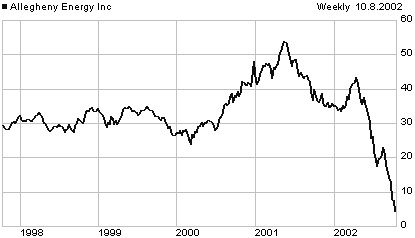 On
an October 08:
On
an October 08: 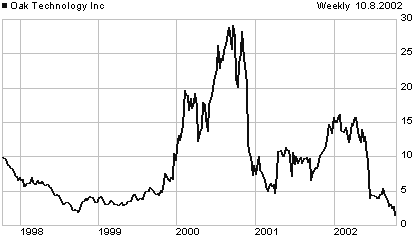
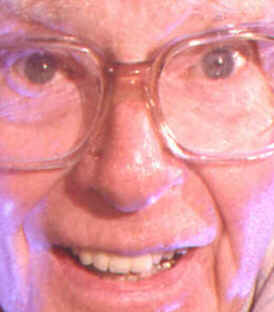
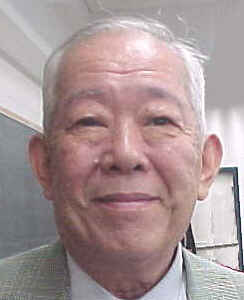
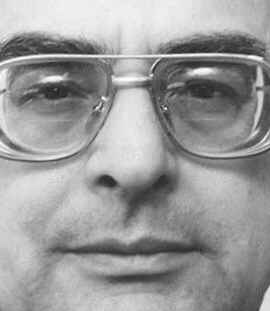
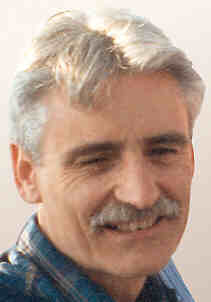
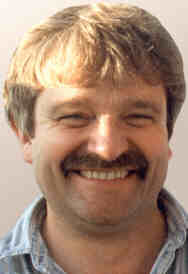
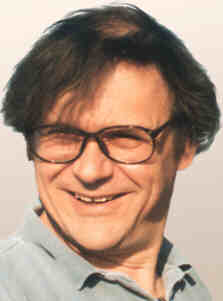
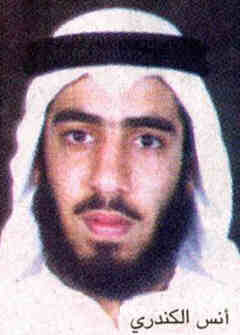 Deaths
Deaths